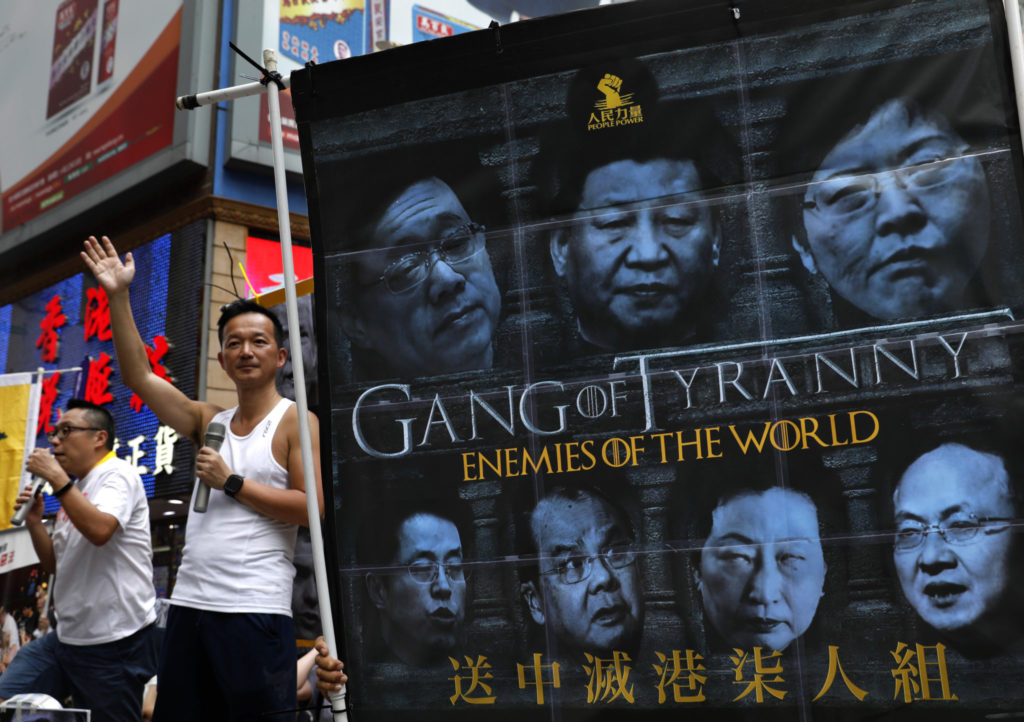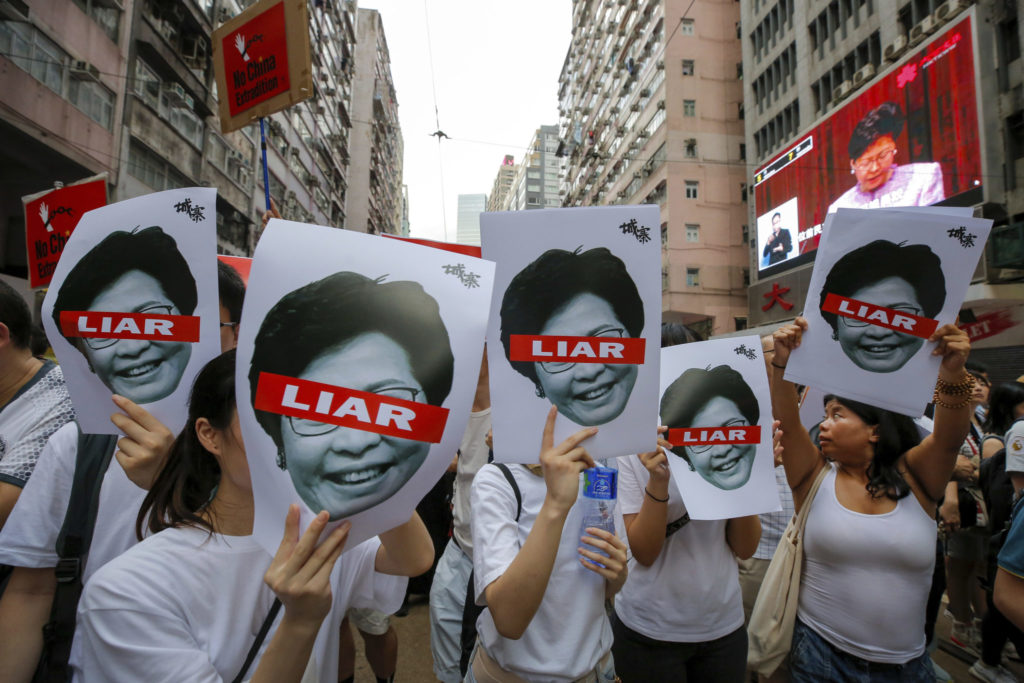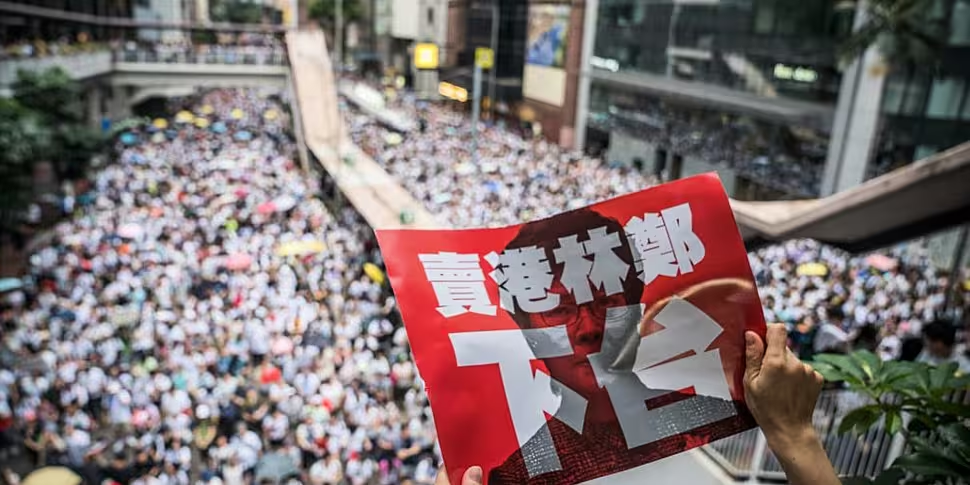Hong Kong's chief executive has insisted the region will push ahead with a controversial extradition bill despite huge protests in the region yesterday.
Critics of the new bill have warned that it could be used by China to make critics and political opponents “disappear.”
The regions CEO Carrie Lam said she has made minor changes to the bill but has refused to scrap it – insisting it is needed to “uphold justice.”
The proposed changes would allow people to be transferred to jurisdictions that the territory doesn't currently have extradition agreements with.
At the moment, extraditions to countries without agreements with Hong Kong - including mainland China and Taiwan - can only take place on a 'case-by-case' basis.
Officials say no such case-based surrenders have taken place since 1997 due to legislative loopholes and practical challenges.
 Protesters display a banner as they march along a downtown street in Hong Kong, 09-06-2019. Image: AP Photo/Vincent Yu
Protesters display a banner as they march along a downtown street in Hong Kong, 09-06-2019. Image: AP Photo/Vincent YuProtests
Hundreds of thousands of people took to the streets on Hong Kong on Sunday to protest the plans.
Police used pepper spray to disperse protesters outside the territory's parliament building on Sunday.
They were part of an earlier demonstration calling for authorities to block the controversial bill.
If passed into law, the bill will allow suspected criminals in the territory to be sent to the mainland to face trial.
The Hong Kong government has insisted the proposed amendments "mainly target fugitives who have committed serious crimes" and would not affect freedom of speech or freedom of the press.
Hundreds of thousands of people took part in the protest, which was mostly peaceful.
But violence erupted late on Sunday evening outside parliament as protesters tried to break past police to enter the Legislative Council building.
Pictures from the scene showed police using pepper spray, and a bloodied officer resting on the ground.
 Protesters hold pictures of Hong Kong Chief Executive Carrie Lam as protesters march along a downtown street in the city, 09-06-2019. Image: AP Photo/Kin Cheung
Protesters hold pictures of Hong Kong Chief Executive Carrie Lam as protesters march along a downtown street in the city, 09-06-2019. Image: AP Photo/Kin CheungExtradition
Earlier in the day, demonstrators of all ages and backgrounds chanted "no China extradition, no evil law" during the march, while some also demanded the resignation of Ms Lam.
Teacher Garry Chiu, who was at the protest with his wife and one-year-old daughter, said: "It is no longer about me. I need to save my daughter.
"If the law is implemented anyone can disappear from Hong Kong.
"No one will get justice in China. We know there is no human rights."
Human rights
Human Rights Watch has warned that the changes would have a “rippling, chilling effect on free speech in Hong Kong.”
Several senior Hong Kong judges have also raised concerns about the changes, highlighting a lack of trust in the mainland courts as well as the limited nature of extradition hearings.
Hong Kong officials have defended the plan, arguing there are adequate safeguards and insisting no one would be extradited if they face political or religious persecution or torture, or the death penalty.
"We continue to listen to a wide cross-section of views and opinions and remain to open to suggestions on ways to improve the new regime," a government official said.









